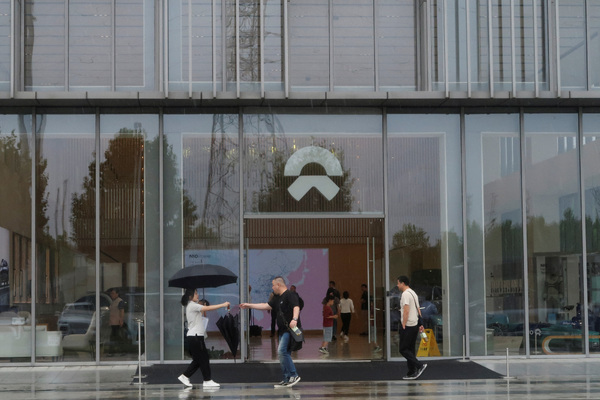Breaking free of vendor lock-In

Martin Biggs at Spinnaker describes how ditching vendor lock-In can supercharge your AI investment
For businesses, AI is the new technological frontier. But is your map to this exciting – and potentially lucrative – new frontier being drawn by someone else?
For many businesses, this is the reality of dealing with large ERP vendors who use AI as a carrot, dangling it just out of reach unless you stay firmly within their ecosystem, innovate on their timeline – and do so under strict terms and conditions.
The true innovation challenge today is not so much about how and when to adopt AI tools but finding a way to do so without being tied to a single vendor’s vision. The fundamental problem here is vendor lock-in: a situation where a business is essentially trapped within the ecosystem of a single software vendor, unable to easily migrate or innovate outside the confines of that vendor’s roadmap.
This problem is exacerbated as vendors push their own AI products, often at the expense of customer choice and flexibility. Take SAP, which recently limited access to its AI and sustainability innovations to customers who have migrated to its cloud-based solutions using SAP’s migration offering, RISE with SAP.
This decision left many on-premises customers—who rely on these systems for critical operations—out in the cold, unable to access the latest advancements simply because they haven’t moved to the cloud.
Vendor lock-in not only stifles innovation but also places businesses at the mercy of their software suppliers. When a vendor controls the AI roadmap, businesses are left with little room to negotiate costs or timelines. The ability to choose the right AI solutions at the right time becomes a luxury that only a few can afford – and even if your business can afford it, you must surely ask whether this high price tag actually represents good ROI.
This situation is particularly troubling as the pressure to migrate to cloud-based systems grows, driven by vendors who see AI as a lucrative opportunity to lock customers into long-term, costly contracts.
The cost of maintaining the status quo
The financial implications of vendor lock-in are significant. Many enterprises spend a substantial portion of their IT budget on maintaining existing software systems, with annual support fees often consuming around 20 percent of the software licence fee. These fees, which are subject to inflation, can quickly balloon, often surpassing the original cost of the software itself.
As a result, businesses find themselves in a situation where more than half of their technology budget is spent simply on keeping the lights on, leaving less than 20 percent available for innovation and transformative projects.
This disproportionate allocation of resources is a direct consequence of the restrictive policies imposed by software vendors. Major software upgrades, for instance, are often driven by the vendor’s revenue objectives rather than the actual needs of the customer.
Customers are lured into these upgrades with promises of next-generation technologies, but the reality is often less rosy. Many have found themselves forced into costly and disruptive migrations, only to discover that the promised features—such as AI capabilities—are restricted or available only under specific conditions that serve the vendor’s interests, not theirs.
Rethinking software support to unlock AI potential
For businesses looking to break free from this cycle of dependency and unlock the full potential of AI, a fundamental shift in strategy is required. This shift begins with rethinking how software support is managed. Rather than being tied to a single vendor’s support package—where costs continue to rise while innovation remains stifled—businesses can explore alternative options, such as switching to third-party support providers.
These savings can then be reinvested into AI and other innovative technologies, allowing businesses to drive their digital transformation agenda at their own pace and on their own terms. Importantly, third-party support providers offer the flexibility to maintain existing on-premises systems while still accessing the latest advancements in AI and other technologies from independent providers.
The power of diversification
Diversifying support and maintenance is a strategic move that empowers businesses to regain control over their IT investments. It just so happens that it’s a huge cost-saver, too. Win-win.
With third-party support, businesses can maintain full support for their customised environments—whether on-premises or in the cloud—while avoiding vendor lock-in. Security, compliance, and system customizations are all handled by the third-party partner, ensuring that your business remains fully operational and secure.
This strategy also opens the door to a more tailored approach to AI adoption. Instead of being forced into a one-size-fits-all solution dictated by the vendor, businesses can choose the AI tools and technologies that best meet their specific needs from across the industry – or – provided by other parties to the vendor. This flexibility not only enhances the potential for innovation but also allows businesses to stay agile.
Embrace flexibility, fuel innovation
Above all, your business must have the flexibility to innovate on its own terms. Vendor lock-in is a significant barrier to this flexibility, stifling innovation and draining resources that could be better spent on transformative projects. Who would have thought that simply by rethinking your ERP support, your business could break free from the constraints of vendor-led roadmaps, reduce costs, and unlock the full potential of AI?
The future of innovation lies in flexibility, and the key to that flexibility is in choosing the right support strategy.
Martin Biggs is Vice President and Managing Director, EMEA and Strategic Initiatives at Spinnaker
Main image courtesy of iStockPhoto.com

Business Reporter Team
Most Viewed
Winston House, 3rd Floor, Units 306-309, 2-4 Dollis Park, London, N3 1HF
23-29 Hendon Lane, London, N3 1RT
020 8349 4363
© 2024, Lyonsdown Limited. Business Reporter® is a registered trademark of Lyonsdown Ltd. VAT registration number: 830519543





